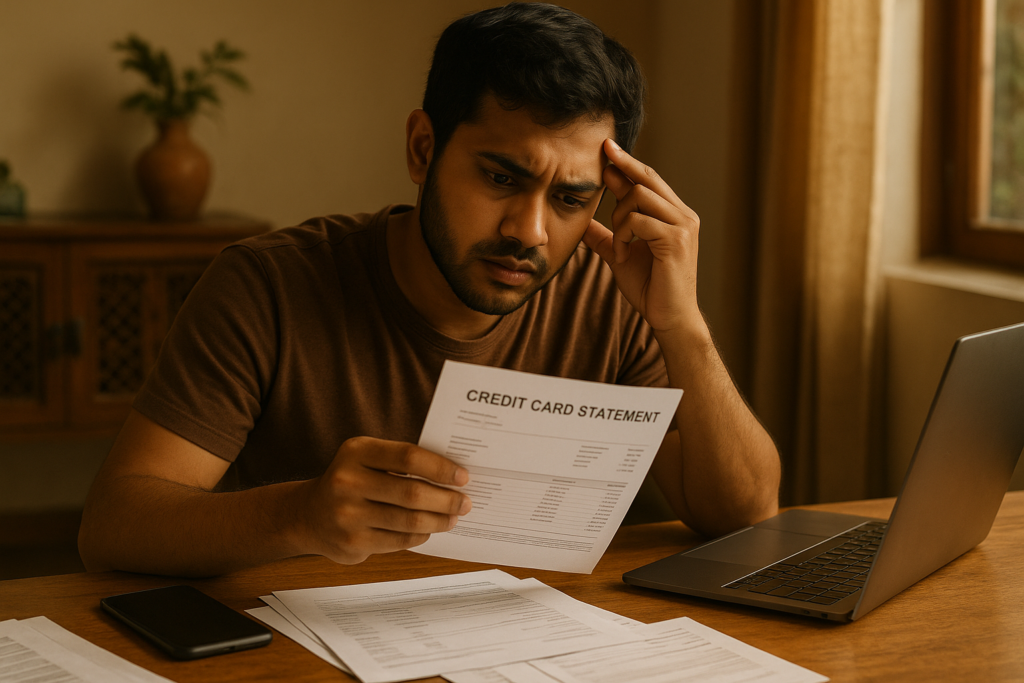India’s love affair with credit cards is stronger than ever. While cards offer incredible flexibility and convenience, the surge in credit card spending has created new risks for individuals and the banking system. Rising credit card debt and delinquencies are now drawing attention from policymakers and households alike. Understanding what’s fueling this trend, its impact, and how to protect yourself has become vital for every credit cardholder.
The Recent Boom in Credit Card Usage
Over the last decade, India has witnessed a rapid increase in credit card adoption. From tier-I cities to small towns and even rural pockets, credit cards have become a common personal finance tool. According to RBI data, total outstanding credit card dues have crossed ₹2 lakh crore in 2024—almost double what it was just five years ago.
- More than 100 million credit cards are now active in India.
- Digital payments, e-commerce, and mobile wallets have pushed card usage for everyday purchases.
- Banks have introduced cards to suit all lifestyles: from zero annual fee credit cards to reward-rich premium cards.
What’s Behind the Surge in Credit Card Debt?
The reasons for the increase in unpaid credit card balances are varied and complex:
- Easy Access: Instant application and approval processes (thanks to video KYC and digital banking) have made it simple to apply for a credit card online and receive instant credit card approval.
- Attractive Offers: Introductory credit card offers, cashbacks, and reward programs entice first-time users to overspend.
- Low Minimum Payments: Only a small percentage of the bill needs to be paid each month, making it easy for balances to accumulate.
- Urban Aspirations: Lifestyle upgrades, travel, and online shopping habits have risen, often outpacing income growth.
- Financial Literacy Gaps: Many new users don’t fully understand interest charges and penalties for late payment.
The Reality of Delinquencies: What Are They and Why Do They Matter?
Delinquency refers to falling behind on your credit card dues. In simple terms, if you miss a payment by the due date, your account becomes delinquent. The longer a payment is overdue, the more severe the impact. Lenders track 30-day, 60-day, and 90-day delinquency rates.
In 2023–24, Indian banks reported a uptick in credit card delinquencies, especially among new-to-credit users and customers with multiple cards. The Reserve Bank of India has flagged this as a concern, warning about pressure on household debt and banking stability (RBI).
Consequences of Growing Credit Card Debt
- Higher Financial Stress: Unpaid credit card balances attract interest rates of 36–48% annually. Even missing one payment can snowball into significant debt.
- Credit Score Damage: Late payments immediately impact your credit score, making future loans and credit card applications much harder.
- Penalty Charges: Beyond interest, card issuers levy hefty late fees and over-limit charges.
- Lender Caution: Banks tighten their credit policies, restrict limits, and sometimes close accounts if payment patterns decline.
Key Data: India’s Credit Card Delinquency in 2024
- National delinquency rates on credit card portfolios have crossed 2.5% in early 2024, up from less than 2% in 2022.
- More than 8% of urban cardholders have missed at least one monthly payment in the past year.
- The highest jump in defaults is among consumers aged 22–32, often new-to-credit users attracted by instant credit card approval and sign-up rewards.
Credit Card Debt vs. Other Loans: A Risky Mix
Unlike home or car loans, credit card debt is ‘revolving’—you can pay the minimum and carry forward the rest. But this is a trap. For example, a ₹10,000 outstanding, if only minimum payments are made, may balloon to over ₹16,000 in a year due to interest and charges. The flexibility of a credit card is useful, but overuse without discipline is risky.
How to Protect Yourself from Debt and Defaults
- Pay in Full: Always pay your total outstanding amount, not just the minimum.
- Track Spends: Use apps and text alerts to monitor your credit card account regularly.
- Compare Credit Cards: Consider switching to a cashback credit card or zero annual fee card that fits your actual needs.
- Limit Borrowing: Keep your credit utilization below 30% of your credit limit.
- Automate Payments: Set up auto-debits so you never miss a due date.
- Avoid Cash Withdrawals: These attract the highest interest and instant charges.
What Banks and Regulators Are Doing
Banks have started tightening approval criteria, especially for new users. Some have reduced pre-approved offers and increased scrutiny for high credit utilization. The RBI has issued fresh guidelines to card issuers to ensure better disclosure of charges, prompt communication, and stress testing of their credit card portfolios (RBI).
Credit Card Benefits Still Matter—If Used Responsibly
Despite the concerns, credit cards remain a valuable tool for building credit history and enjoying rewards. Responsible users earn cashback, free travel, and exclusive perks. For instance:
- The SBI Cashback Credit Card gives flat 5% cashback on most online spends.
- HSBC Platinum Credit Card offers zero annual fee plus introductory bonuses for new users.
When you compare credit cards and understand the fine print, you enjoy the benefits without the risks.
FAQs: Credit Card Debt and Delinquency in India
1. What are the main reasons for credit card delinquencies rising in India?
Easy access to credit, aggressive rewards, low financial awareness, and increasing lifestyle spending outpacing earnings are primary reasons. Many users, especially first-timers, are unaware of the interest and charges that pile up after missing payments.
2. How does missing a credit card payment affect my credit score?
Even a single missed payment can lower your credit score by 50–100 points or more. Repeated delinquencies make it harder to get future loans or credit cards and increase interest rates on existing products.
3. Is it better to make only the minimum payment or pay the bill in full?
Paying only the minimum leaves a large portion of your balance subject to high interest, quickly growing your debt. Always pay the entire statement amount if possible to avoid charges and protect your credit score.
4. Will closing my credit card solve debt problems?
Not always. Closing a card immediately can hurt your credit score by reducing credit history and available limit. Instead, focus on repaying the outstanding dues and lowering utilization before considering closure.
5. How can I find the right credit card that fits my needs?
Use comparison tools like Find My Card on FinWitty to shortlist options by benefits, fees, and rewards. Look for cards that match your spending pattern—whether it’s for travel, shopping, or bill payments.
Conclusion: Stay Informed, Spend Wisely
Rising credit card delinquencies in India are an early warning sign. Whether you’re a new card user or a seasoned spender, always stay on top of your credit card spending, understand the costs, and use cards as a tool—not a trap. For more tips, reviews, and the best ways to compare credit cards, check out the latest guides on FinWitty.

